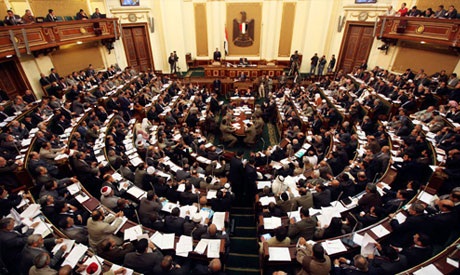
Egyptian Parliament (Photo: Al Ahram)
Two court decisions have been issued on Monday highlighting violations to parliamentary electoral laws.
One ruling issued by the Administrative Court stated that the decision by the Higher Elections Committee to accept candidate's medical check-ups conducted in February was a violation of the House of Representatives law.
Elections were originally planned to take place in March and April, and candidate registration was accordingly begun, but the Supreme Constitutional Court ruled that the electoral constituency law was unconstitutional, bringing preparations to a halt.
The law was subsequently amended, and last month it was announced that the election would take place over several phases from 17 October to 2 December.
The elections committee announced last week that would-be candidates who had previously passed the required medical check-ups in February did not need to take the medical tests again when they re-submit their applications to stand for election. The committee added that the decision aims at making the electoral process easier for prospective candidates.
The required medical tests cost LE2,850, and passing the check-ups is required for candidates to be approved to run.
Following the ruling, however, the HEC announced extending the scheduled registration period, originally scheduled to close on 12 September, for three days in order to allow candidates to re-take their medical tests.
On Monday the Administrative Court also accepted a lawsuit filed by a lawyer against the decision of Prime Minister Ibrahim Mahlab to change the boundaries of two electoral constituencies, one in Cairo and one in the Upper Egyptian governorate of Qena.
The lawsuit argued that Egypt's official gazette had issued the constituency law with a change in the locations of the two constituencies, and it was unclear whether the prime minister intended to make these changes or whether it was a procedural error.
Constitutional expert Shawky Sayed told Ahram Online that the High Elections Committee should implement the court's decisions without suspending any of its activities.
Sayed argued that the decisions “would not threaten the elections' legality.”
He added that it was too late for an appeal on the decision, given that the elections are scheduled to begin in month's time.
The government usually appeals such verdicts since they have been issued by a primary court.
A source within the elections committee told Al-Ahram Arabic news website that the committee will not be issuing any appeals against the two court decisions.
Egypt has been without a parliament since the June 2012, when a Supreme Constitutional Court ruling dissolved the Islamist-dominated parliament due to the illegality of the then electoral law.
Short link: